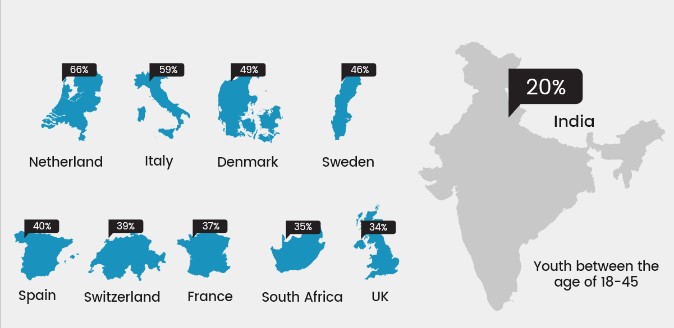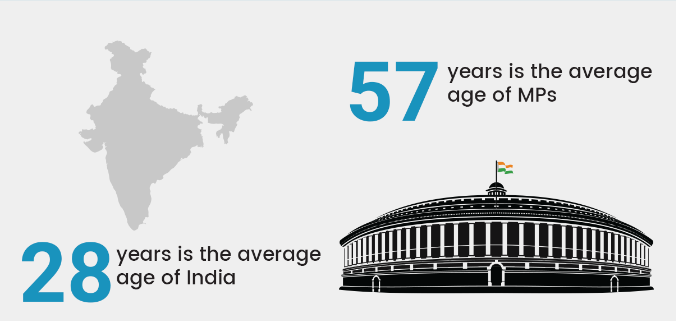On 7th December, 2023, Indian Income tax department undertook the largest cash confiscation operation in Indian History. Income tax department, along with CISF, Central industrial security force, confiscated INR 454 Cr cash from liquor manufacturers in Odissa and Jharkhand. Covering multiple offices and factories, the raid continued for days, taking extra 4 days only to count the recovered money.
I-T department raided multiple locations of Boudh Distilleries Private Limited (BDPL), which is the leading liquor supplier in Odissa. The scam is directly linked to major political leaders, questioning our own judicial system. If legislators break the law themselves, it’s hard to expect the public to follow.
Although political parties are denying any direct involvement, it is still unbelievable that money fraud of such an extent was possible without any political sway. And this is not the first time that corruption case, or money laundering cases have made headlines. In the past year, 4,139 corruption cases have been recorded nationwide, with I-T department seizing assets in thousands of crores.
As per survey of World Economic Forum, India is one of the last scorers in the honesty ranking, scoring 45th position out of total 49 nations.
Although the level of corruption in India has decreased to a certain extent- evident from a decade-long Corruption Perception index (CPI), where India improved its score from 33 points (year 2010) to 40 points (year 2020), but still just managed to cross the borderline in terms of corruption comparing to other nations, such as New Zealand and Denmark soring 88 out of 100 points. Singapore, Sweden and Switzerland and Finland scored 85 out of 100 points.
But what are these nations doing right that less honest nations are failing to adopt? We pen down this article to find out answers.
Uncomplicated tax regime:
In India, the tax filing process is complicated and even so more complicated for a common man to understand- that is why Indian’s have to rely on chartered accountants for sorting their taxes- explaining the high demand for charted accountants in the country. As per the reports of Just Dial, a type of search engine, India has a high demand for charted accountants, witnessing a spike of 47% in just a year.
Whereas in nations such as Sweden, Singapore and New Zealand, the tax regime is simple and uncomplicated, attracting not only investments but also curbing the chances of tax frauds, as evident in the report of World Bank- “Paying Taxes”.
Robust legal framework:
Despite being top scorers on the Corruption Perceptions Index (CPI), these nations exhibit agile systems that swiftly address and rectify issues, even as they grapple with challenges such as corruption and money laundering scams.
In India, more than 6841 corruption cases are still pending in Indian judicial system. More than 300 corruption cases against public servants and class-one officers are still on hold due to prosecution sanction, a form of written consent needed before beginning the enquiry on accused person.
As per the reports of ‘The Hindu’, some of these sanctions are pending for the past eight years. The data highlights the sluggish response of the legislative system in India.
In addition to these, other factors such as technological advancement, geographical conditions, political structures and high morals of general public also contribute to curbing corruption, but the most distinguishable factor is the young leadership.
Young leadership:
Young population in these nations participates significantly in political roles and decision making, explainable in their agile frameworks. In Denmark and Sweden, almost half of the parliament is made of young population (between the ages of 18-45), Netherlands has 66% of leaders under 45 years, evident in the image below.
On the contrary, India has only 20% of young people in parliament, despite being number 1 nation in housing youngest population in the entire world. But this is not the problem of India only, this is a global issue.
Country-wise Percentage of Youth (18-45 Years) in Parliament Compared to India

On global scale, Inter Parliamentary Union (IPU) report states that the proportion of young population in parliaments around the world has notched up by 0.4%, standing at 2.6%, but still the large disparity is hugely disappointing for the world where half of the population is under 30.
The other shocking number, which signifies the importance of young representation in the parliament, is the stark difference between the average age of Indian and the average age of an MP Member. The average age in India is 28, while the average of a Parliament member is 57 years.

The numbers are disheartening, but pose a significant question- why young people are not up for political roles?
Why Youth in India are not joining politics:
More than research, the answer to this question is based on common sense. India is a secular country with varied religions, communities, languages, and caste structures. On top of that, India has the largest geographical variations in the entire world. India alone houses six different landforms, none of any other country, not even a continent has more than two. These social and geographical limitations amplify the political leadership problems for India.
As a result, managing the political discussion in the country is tiresome, involving majority of discussions related to classism and religion. This propaganda cripples the decision making process, discouraging the youth from active participation.
Adding on, in young minds, politics is perceived as a corruption-crippled field, which involves dealing with corruption at every stage. Dynastic politics and disconnect between existing political structures and the concerns of the youth contribute to this phenomenon.
Conclusion:
While India struggles to fight against corruption, Indian youth beams the ray of light. Lack of guidance, motivation, and frowned image of politics in India offer constraints, but incorporating youth in politics is not just an investment in future, it is a commitment required for inclusive and progressive democracy.
Copyright © 2026 getessayservice.com

